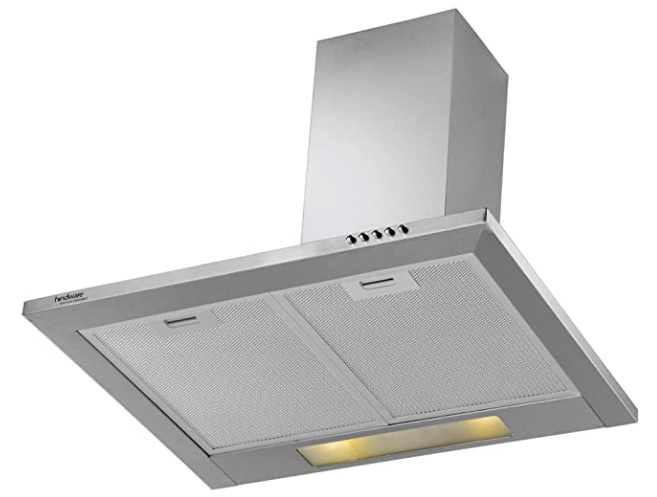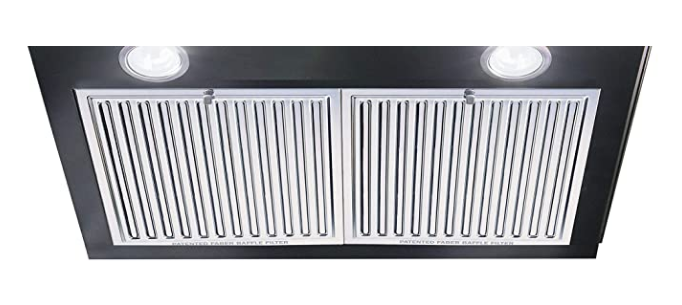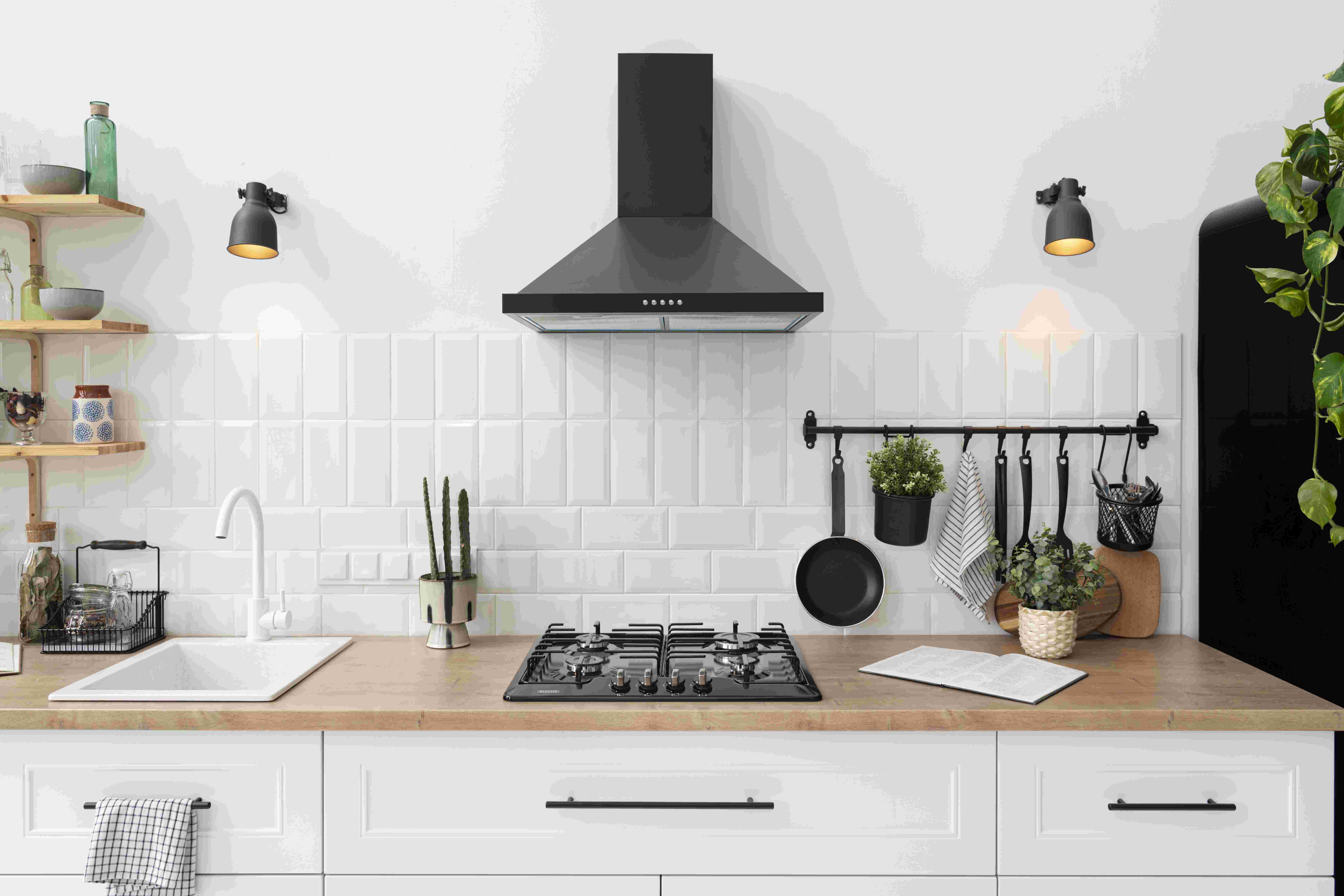Chimney filters – Kitchen Chimney Filter Types
Table of contents
- What is a chimney filter?
- What are the types of chimney filters?
- Mesh filter or cassette filter – Description ,advantages & disadvantages
- Baffle filter – Description ,advantages & disadvantages
- Charcoal filter -Description ,advantages & disadvantages
- Comparison of the chimney filters
- Autoclean chimney
Kitchen chimney is one of the quintessential appliances of the modern kitchen. Chimney plays a major role in keeping the kitchen clean, odor free and hygienic. Buying a kitchen chimney is a major decision. Though the market is flooded with different types of chimneys and selecting a chimney is based on various factors, one such important factor is the filter of the chimney.
The chimney filters collects the oil, grease,dirt, solid particles and helps in providing clean air to the kitchen. So selecting a chimney with the type of filter that fits your kitchen needs is an important factor. Moreover the suction power of the chimney heavily relies on the type of filter. For this, understanding about the chimney filters and knowledge about the type of chimney filters in the market comes into play.
What is a chimney filter?
The filter of the chimney is present on the outer side of the chimney and helps in filtering the oil, grease and solid particles from the smoke arising while cooking and allows only the air to pass through. So selecting the right type of chimney filter that fits your kitchen, ensures the efficiency of the chimney.
What are the types of chimney filters?
- Mesh filter or cassette filter
- Baffle filter
- Charcoal filter
Mesh filter | Cassette filter

Mesh | Cassette filters consist of several layers of mesh made up of either aluminium or stainless steel. These mesh has tiny holes or passages through which the air alone passes, retaining the oil and solid particles from the smoke. But one of the major drawbacks in using this type of filter is, the mesh has very tiny holes such that it easily gets blocked by oil and grease particles reducing the suction power of the chimney. So it’s usually not preferred for Indian cooking.
Advantages of mesh / cassette filters
- Light weight and hence easy to remove and clean.
- Economical
Disadvantages of mesh / cassette filters
- Mesh holes get blocked by oil and grease particles.
- Have to be cleaned once a week.
- Not suitable for Indian cooking.
- When the mesh gets blocked, the air might struggle to pass through thus increasing the operating noise of the chimney.
- Might not withstand higher temperatures.
Since these mesh filters are available in both aluminium and stainless steel, let’s see about the pros and cons of these materials.
Aluminium mesh / Aluminium cassette
- Aluminium is lighter in weight than stainless steel and hence it is easy to handle. It can easily be removed and cleaned without any hassle.
- Aluminium might not be able to withstand higher temperatures. So overusing and overheating must be avoided.
- Aluminium mesh can get warped while using cleaning materials like caustic soda or bleach. So care must be taken while cleaning.
- On the positive note, aluminium mesh are relatively cheap and economical.
Stainless steel mesh / Stainless steel cassette
- Mesh / Cassette made up of stainless steel is relatively heavier and stronger than aluminium.
- Since stainless steel mesh are little bit heavier, removing and cleaning becomes little bit tedious. But they are more durable and expensive than aluminium mesh filters.
Baffle filter

Baffle filters are made up of multiple baffles of filters. That is they contain many curved patches of high quality stainless steel with aluminium coating. The air travels through these membranes leaving behind oil and grease. They are relatively easier to clean suits excellently for Indian cooking but have to be replaced once in around 5 years depending on usage.
Advantages of baffle filter
- Easy to maintain. Cleaning once in 6 months is sufficient.
- The filters are dishwasher safe. And also caustic soda and other chemicals doesn’t affect and cause any warpage.
- More durable than mesh/cassette filters.
- Doesn’t cause any blocks and doesn’t affect the suction power of the chimney.
- Improves air flow in the kitchen.
- Best suited for Indian kitchen.
Disadvantages of baffle filter
- Heavier than mesh / cassette filters.
- Little bit expensive / Initial cost. But more durable in the long term.
- Have to be replaced after 5 years.
Charcoal filter
As the name suggests charcoal filters are made up of charcoal granules. These filters can be used along with mesh and baffle filters. They are not washable and have to be replaced once in 3 to 4 months. The charcoal granules absorb the oil and grease particles and helps in the filtration process.
Advantages of charcoal filters
- Even though have to be replaced often, the price of the filters are on the lower side.
- Most efficient among the filters.
Disadvantages of charcoal filters
- Non washable. Have to be replaced once in 3 to 4 months.
- Frequent maintenance needed.
| Mesh / Cassette filter | Baffle Filter | Charcoal Filter |
|---|---|---|
| Usually made of aluminium mesh | Made up of numerous high quality stainless steel panel | Made up of charcoal granules |
| Grease and oil trapped by tiny mesh holes | Grease, oil and solid particles gets sedimented on the panels. | Charcoal granules absorbs oil and grease |
| Not suitable for Indian kitchen | Excellently suits for Indian kitchen needs | Suits for Indian kitchen |
| High maintenane | Low maintenance | Low maintenance |
| Should be cleaned once in a week | Should be cleaned once in 6 months | Should be replaced in 3 to 4 months |
| Low weight and hence easier to handle | Heavier & durable | Durable |
| Creates more noise | Lesser noise compared to mesh filters | Lesser noise compared to mesh filters |
| Blockage by grease and oil decreases suction power | No effect of grease on suction power | No effect of grease on suction power |
| Economical | Expensive but durable | Expensive – Have to replace regularly |
Autoclean chimney
Autoclean chimneys are low maintenance models in which there is a provision for oil collector and a heating element. There is an autoclean button given on the hood. When you press the button the heating element gets activated and melts the oil and grease from the motor, filters and the inner surface of the chimney and the oil drips into the oil collecting tray. The oil collector tray can easily be removed and cleaned with normal dishwashing liquid and scrub. This helps to minimize the blockage in the internal components resulting in a longer shelf life of the chimney motor and suction power.
Advantages of self cleaning | Autoclean chimney
- Reduces oil and grime settlement in the filters and internal parts of the chimney. This in turn maintains the suction power and the efficiency of the chimney.
- Since there is no oil clogging on the chimney motor these chimneys are highly efficient and durable than manual chimneys.
- Maintenance is very easy as the oil collector can be removed without any hassle and cleaned once in a while compared to cleaning the entire filter which requires more time and energy.
- Though the initial cost of the self cleaning chimneys are higher, lesser maintenance and service cost and longer durability and efficiency prove to be cost effective in the long run.
Self cleaning chimney | Autoclean chimney
LOW NOISE KITCHEN CHIMNEY | NOISELESS KITCHEN CHIMNEY
Kitchen chimney size – The right size for your kitchen
Features to look for before buying chimney for your kitchen – Kitchen chimney buying guide

